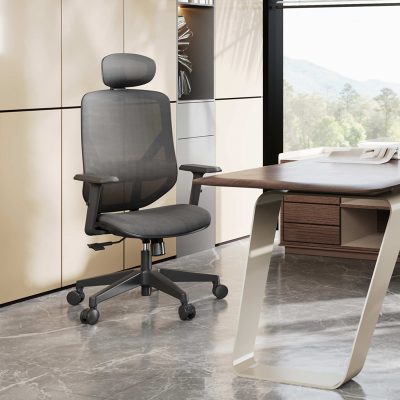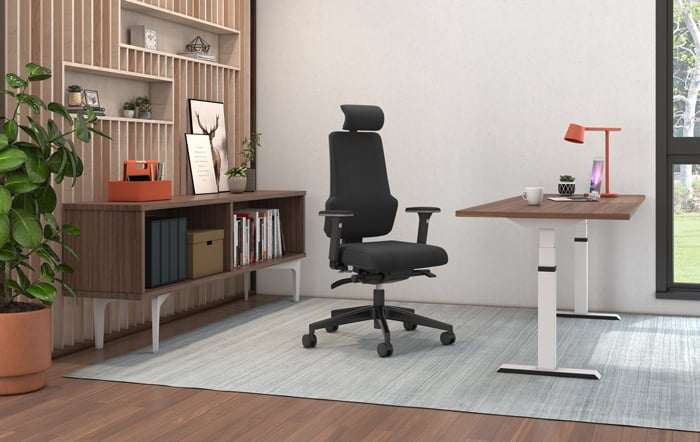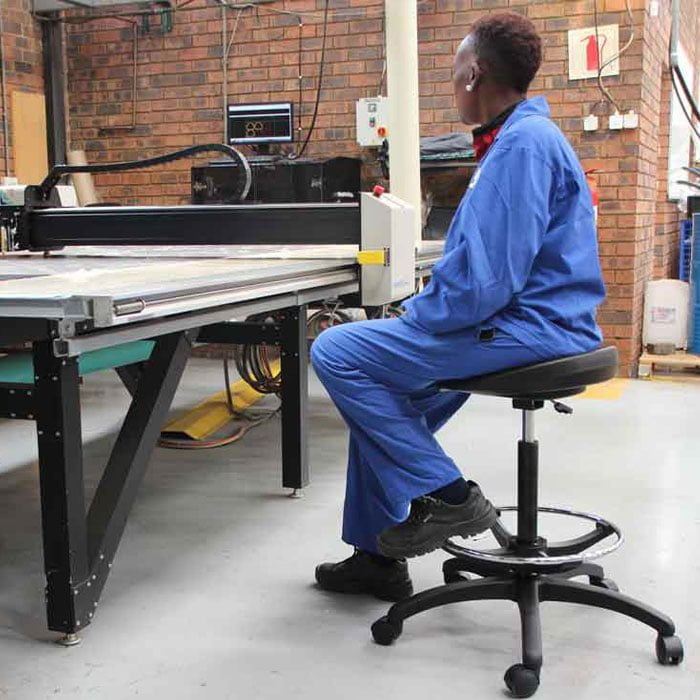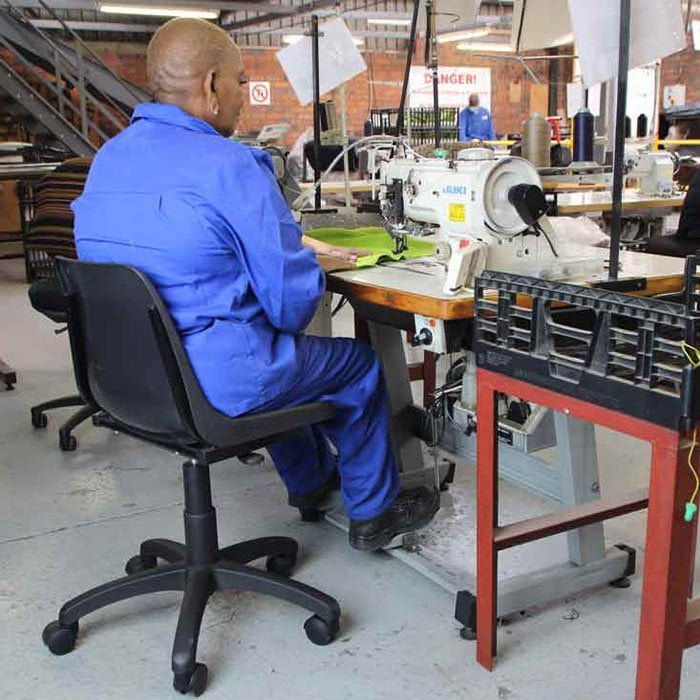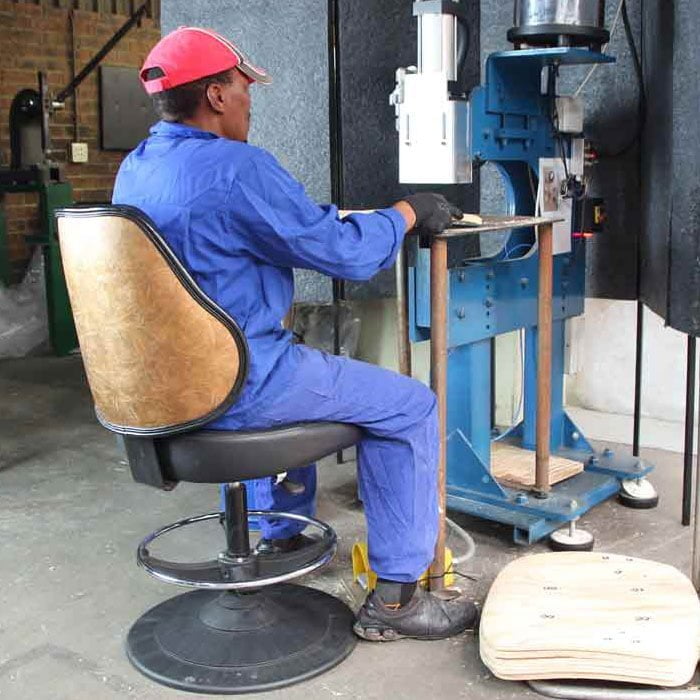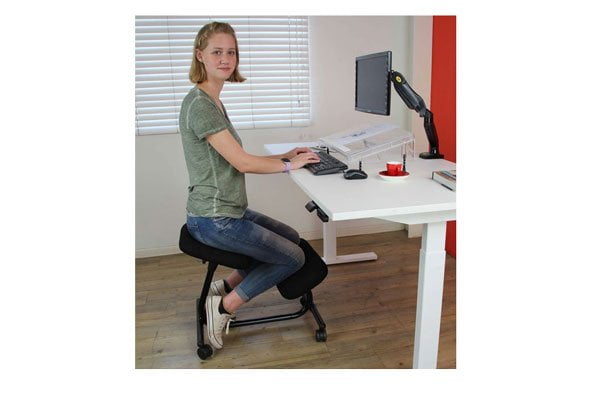Are you spending long hours at a computer, whether at home or in the office, on an assembly line, in a medical facility, a lab, or even a call centre? Choosing the right work chair is extremely important! What kind of chair suits you best? If you'll be sitting for extended periods, investing in a good chair can make all the difference! How Do I Know If I Need a New Office Chair? The 7 Signs
The work you do influences what chair you need!
This might seem like a no-brainer, but it’s a step that often gets overlooked when picking a new chair. Different chairs are suited for different work environments. For instance:
- Spending time at the office usually means you'll be seated on a comfy ergonomic office chair. 5 Best Ergonomic Office Chairs for Long Work Sessions.
- If you struggle with chronic lower back issues, consider using an orthopedic, kneeling, or saddle chair. What is an orthopedic chair?
- For those in call centres, you need a chair built to last for 24/7 heavy-duty usage.
- Medical and laboratory professionals, like physiotherapists or dentists, often shift positions and prefer chairs that are easy to clean and have no armrests so that they can move freely around their patients.
- Factory workers and cashiers often work at higher tables and need a chair with a footring and no armrests. You can explore our options of factory and cashier chairs.
- Big and tall individuals should look for a sturdy heavy-duty chair to support their needs.
- Do you need a meeting or boardroom chair?
- Are you working from home? Discover if you need a home office chair. Here is our 3 step guide for setting up your home office!
The bottom line...Choosing the right chair really depends on the kind of WORK you’re doing.
Different Types of Work Chairs
There are a variety of work chairs available, ranging from budget-friendly to luxurious options, and each comes with its own unique set of advantages and drawbacks. How Much Should You Budget for an Ergonomic Office Chair? Let’s explore some of these exciting choices!
1. Ergonomic Work Chairs for Home and Office
An ergonomic work chair is designed to help ease those pesky pains and strains that can come from sitting for long periods while you tackle your tasks at the computer. Check out our guide on the best chair for computer use – 8 must-have features for the ultimate comfort!
It’s very important to make sure that your ergonomic or orthopedic chair is set up just right for your height and workspace. If your chair isn’t adjusted properly, you might start to feel some discomfort in your lower back, neck, shoulders, hips, and knees. Check out this guide on 8 Common Ergonomic Chair Setup Mistakes.
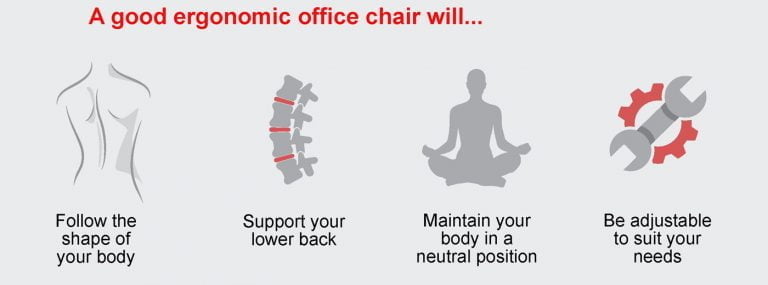
As more companies explore a 4-day work week, many employees are finding themselves sitting for longer stretches. This makes having an ergonomic chair even more essential for keeping everyone happy and healthy.
How Ergonomic Chairs Transformed My Work Life – My Journey with Nerve Pain in My Lower Back
Good ergonomic work chairs should have the following adjustable features:
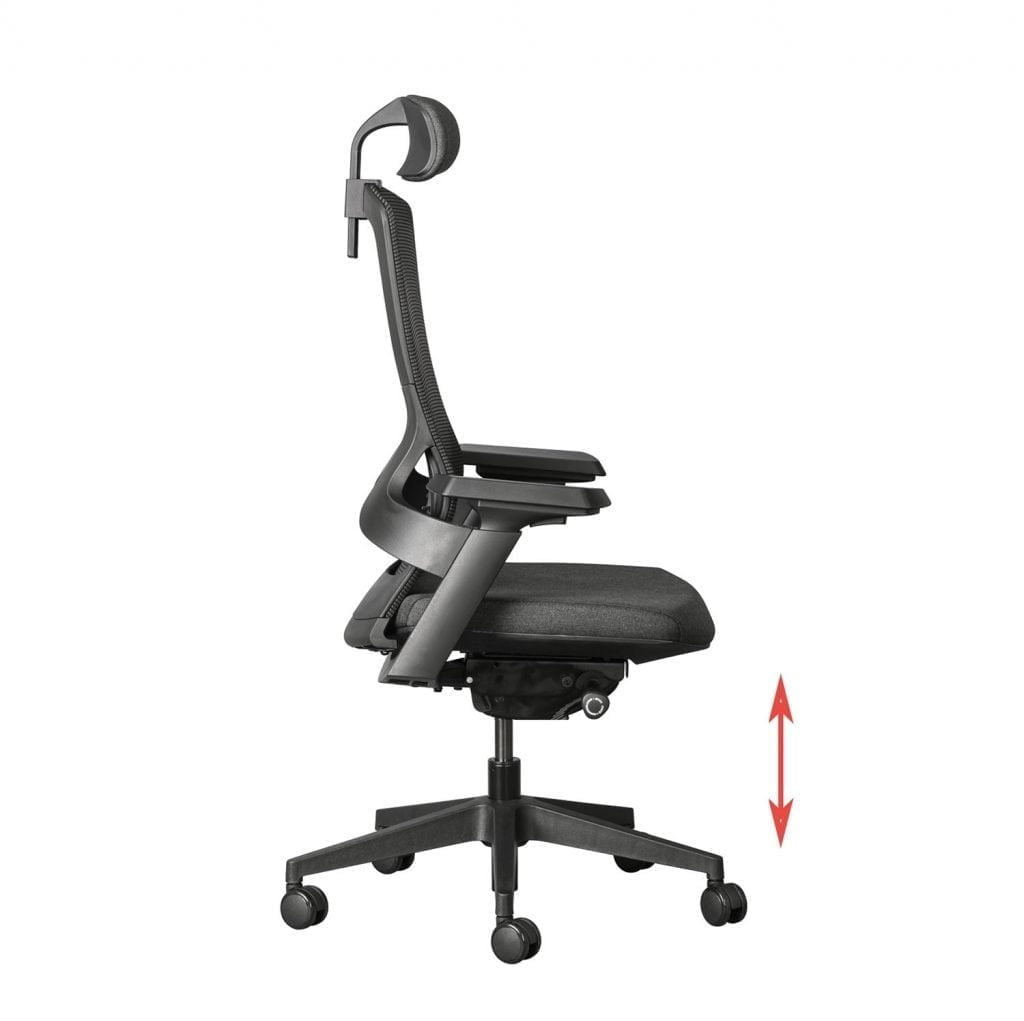
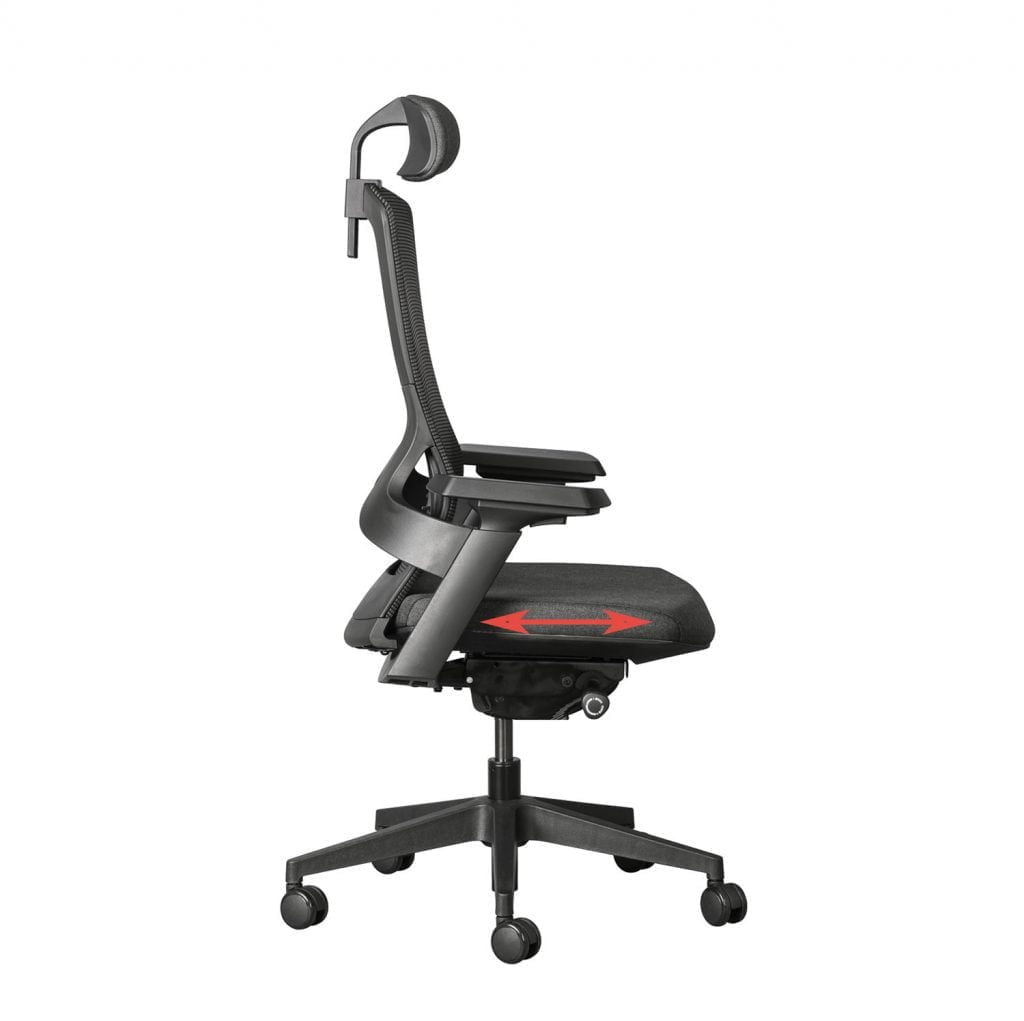
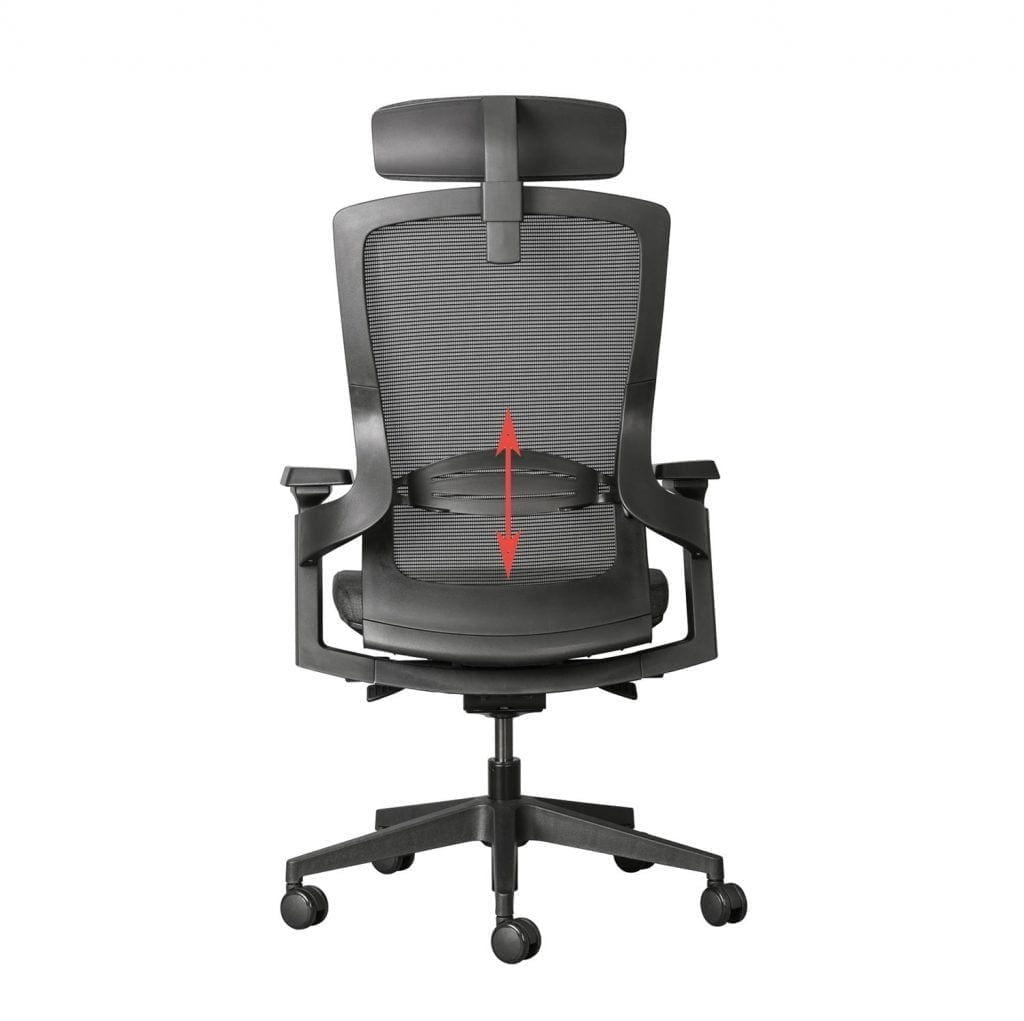
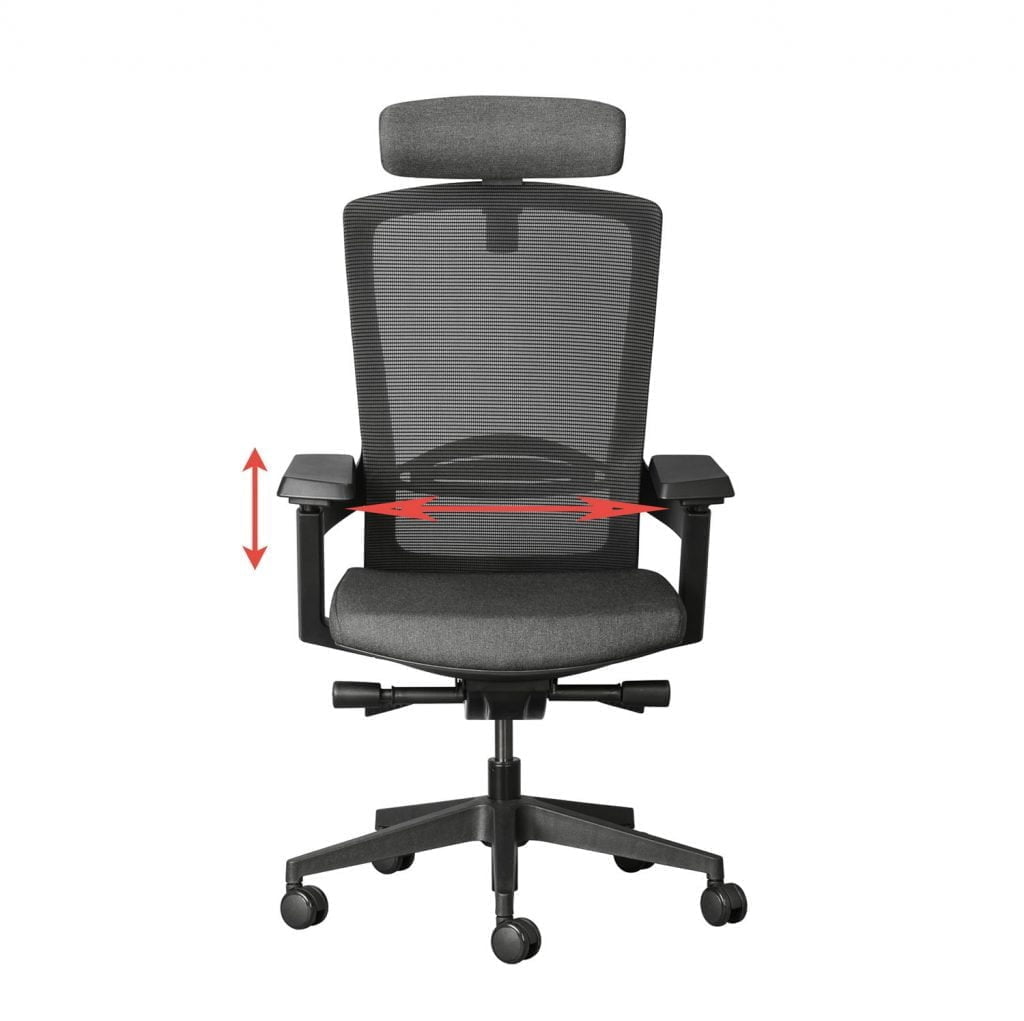
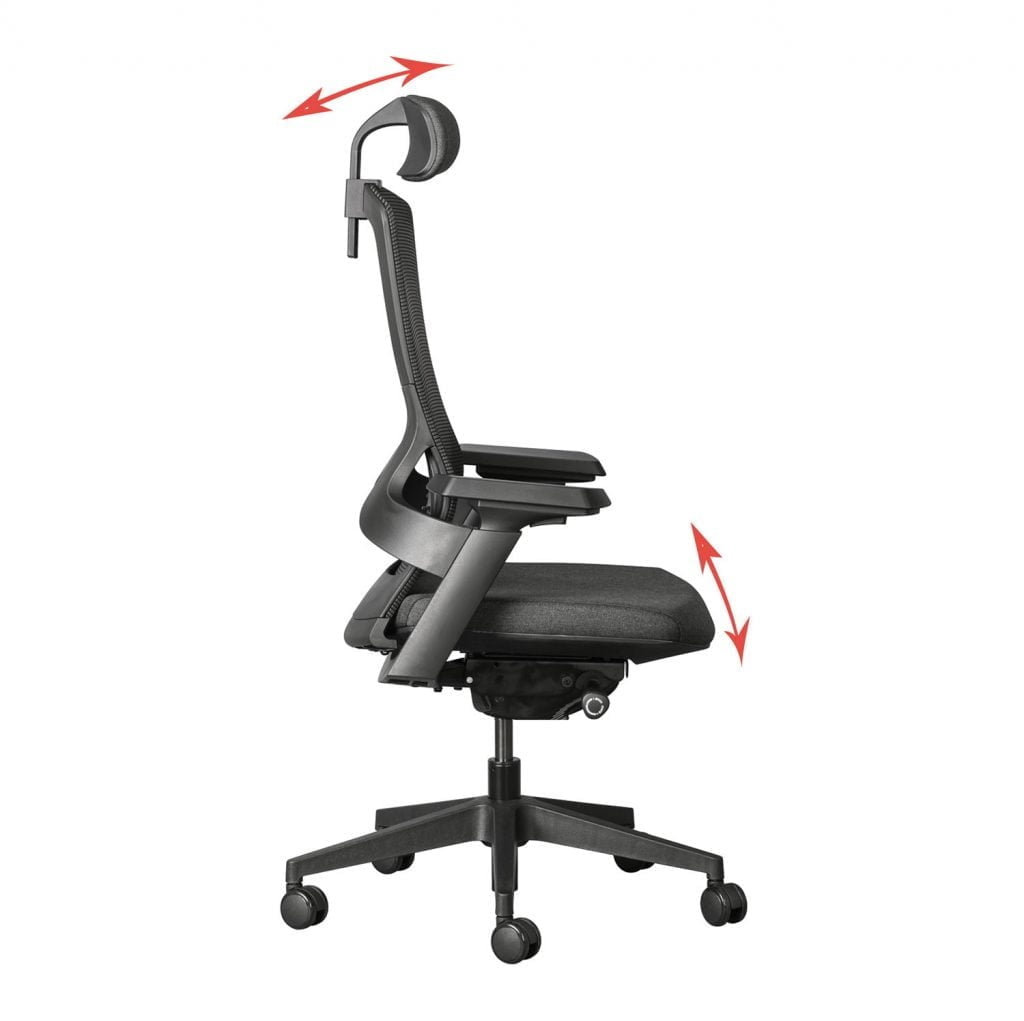
Ergonomic chairs are designed to support your body while you work, and are best suited to all types of office, computer, and study work. Use our Chair Selector to help you select the right chair!
2. Orthopedic Work Chair
Orthopedic chairs share many wonderful features with ergonomic office chairs, but there are some important differences between the two. Like ergonomic chairs, they are designed to help keep back, neck, and shoulder discomfort at bay, ensuring you stay comfy all day long. What's really fantastic about orthopedic chairs is that they come equipped with a Free-Float Swivel Mechanism, allowing you to easily adjust the angle between the backrest and the seat. This fantastic feature means that orthopedic chairs can not only provide relief but also assist in rehabilitating certain medical conditions, particularly those pesky musculoskeletal issues of the spine.
If you’re dealing with sciatica or any spine-related discomfort, it might be time to think about getting an orthopedic chair! While they can be a bit of an investment, these chairs provide amazing support for your back and are perfect for any kind of computer, office, or study task. Can Ergonomic Chairs Help with Sciatica and Pinched Nerves?
3. Heavy-Duty Chairs
When your work environment is a bit more demanding, it's a great idea to consider a heavy-duty chair that offers fantastic strength and durability. For instance, in a 24/7 control room or a call centre, where shifts run back-to-back, you’ll want chairs that can keep up with the hustle and bustle. Plus, if someone weighs around 160kg, they deserve a work chair that's not only larger but also stronger to comfortably support their needs. The Ultimate Guide to Office Chair Weight Limits
In these situations, standard chairs just can’t keep pace. They often max out at 120kg and are typically made for a standard 8-hour workday. Because they’re built with extra strength, heavy-duty work chairs might come at a bit of a premium, but they’re worth the investment for comfort and reliability!
Our Heavy-Duty chairs are perfectly crafted for everyone, whether you’re Big & Tall, or spending long hours in call-centres and control rooms that run day and night.
4. Laboratory and Medical Chairs
When it comes to laboratories and medical facilities, having the right work chair can make all the difference! With high working surfaces, you'll want an adjustable chair that features a footring and no armrests for comfort. These chairs are a favorite among forensic labs, teaching spaces, physiotherapists, and other healthcare providers. Plus, since they're often used in sterile environments, lab stools are typically made from materials like vinyl and polyurethane that are easy to clean. Why Every Production Line Needs the Right Industrial Chair
Laboratory and medical chairs are made for comfort while you work at higher surfaces in clean spaces. Since lab and medical pros are always on the move, these chairs typically come without armrests for easy mobility.
5. Industrial and Factory Work Chairs
Factory or industrial chairs that you'll find on production lines and in workshops need to be super durable. In some industrial settings, especially in food processing, it's important for chairs to be easy to clean. For these environments, choosing non-porous vinyl upholstery is a great option over mesh or fabric. In many workshops, you'll want a sturdy chair, like one with a seat and back made of self-skinning polyurethane (PU) foam.
Factory chairs are made to handle tough work environments. Since they’re designed for practical use, you’ll find that these chairs often don’t have armrests.
6. Kneeling chairs
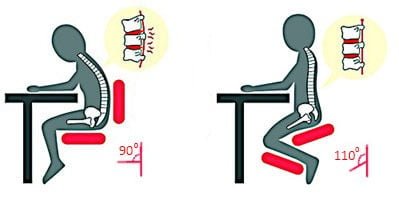
The core idea behind a kneeling chair is to help you keep an ‘open’ pelvis while sitting. This helps ease the strain on your lower back that tends to happen when you’re on a regular chair.
An ‘open’ pelvis means that the angle between your spine and thighs is at least 1100.
By opening the pelvis and lowering the knees in relation to the hips, the disc pressure in the lumbar region of the spine is reduced by up to 65% when compared to sitting in a traditional chair with a 900 back-thigh angle.
Kneeling chairs distribute your weight between the pelvis and the knees which reduces spinal compression, and therefore the stress and tension in the lower back and leg muscles. What actually happens when you sit? Because of their geometry, they don’t require a backrest. However, in most cases you need to sit at a table or desk that is higher than normal.
Kneeling chairs are here to help you sit better by encouraging your hips to slide forward and keeping your back, shoulders, and neck aligned. If you have knee issues, though, you might find it a bit tricky to use a kneeling chair.
7. Saddle Chairs
The saddle chair is fantastic for working at your desk, using a computer, interacting with patients, or getting things done at a workbench! Shaped like a horse's saddle, they allow you to sit in a position that's a fun mix of sitting and standing.
Saddle chairs are perfect if you move around the room a lot throughout the day. It's no wonder they've become the “seat of choice” for dentists, physiotherapists, and other medical professionals who are always on the go and bending over to help their patients. However, if your day mostly involves sitting still, they might make your core and back muscles a bit tired. And just a heads up, saddle seats can be on the pricier side when it comes to work chairs!
If you've ever tried a kneeling chair, you’ll love the saddle chair too! It does a fantastic job of opening up the pelvis as you sit, but with a more relaxed angle of around 1300 between your spine and thighs. How cool is that?
Many people actually prefer saddle chairs over kneeling ones because they’re gentle on your knees and super easy to adjust in height. A little bit pricier, but definitely worth considering!
Just a heads up, a saddle chair works best with a higher desk or work surface, so it’s great if your desk can adjust too! Check out this link for more info: Benefits of using a sit-stand desk.
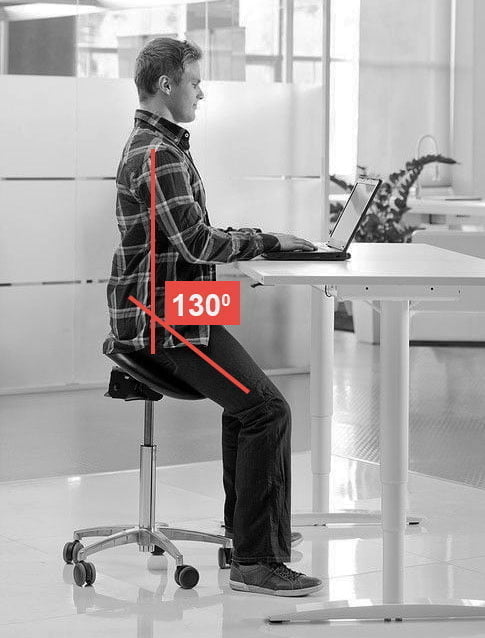
Saddle chairs are designed to improve your posture and reduce lower back pain. Their thoughtful design aims to tackle common issues with traditional office chairs, like lower back pain and slouching, so you can enjoy a more comfortable workspace.
8. Ball Chairs
Ball chairs are a fun way to enhance your posture while giving your core and back muscles a little workout! The clever design of the Ball Chair serves two great purposes. First, your sitting bones gently sink into the ball, making it super easy to stay balanced. Second, the natural wobbliness of the ball invites movement and encourages active sitting. With a slight bouncing motion as you sit, your muscles get a continuous boost, promoting good blood flow through your back, core, and legs. This helps keep stress and fatigue at bay. Many physiotherapists even recommend ball chairs to help tackle musculoskeletal concerns linked to poor posture. If you're interested, check out this helpful guide on How to Find the Right Exercise Ball for You!
While ball chairs come in various sizes, keep in mind that they are not height adjustable. They can be a bit large and tricky to store, but that’s part of their charm!
Some ball chairs are designed with a base frame and castors for easy mobility, and some even come with a cozy backrest. Just like kneeling and saddle chairs, a ball chair typically pairs best with a higher work surface for your comfort.
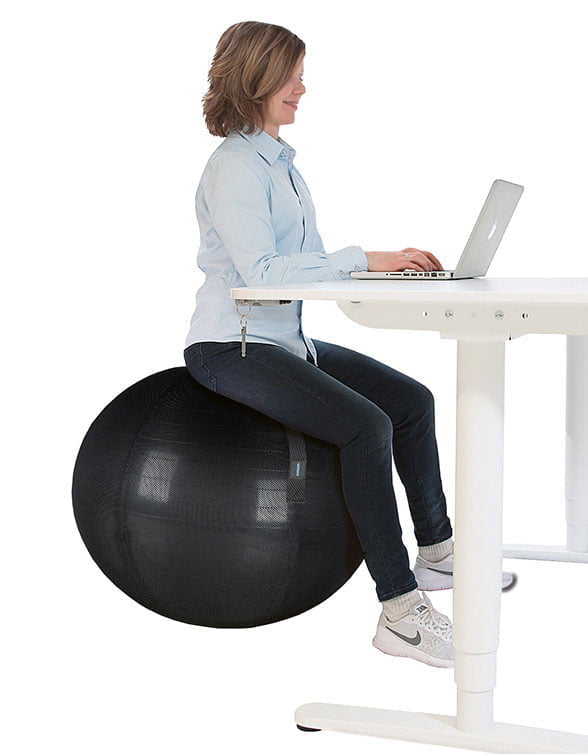
Ball chairs are fantastic for promoting active sitting, helping you sit up tall, and easing lower back discomfort. Balancing on a ball makes it tough to slouch, and the little movements you make to stay on the ball naturally boost your posture.
Conclusion
If you find yourself in a job that keeps you seated for long hours, it’s important to choose the RIGHT chair! While price is a factor, it's not the only one to consider. Unveiling the True Cost of Ergonomic Office Chairs: Are they Worth the Investment? If your work involves spending lots of time at a computer, investing in a quality chair is essential for your wellbeing. Contact us for more info!
By the same author:
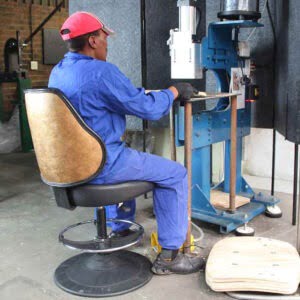
Why Every Production Line Needs the Right Industrial Chair
Invest in the right industrial chair to boost productivity, reduce injuries, and support factory workers on your production line.

Why Automated Fabric Cutting improves quality
High quality office and casino seating requires advanced automation, like automated fabric cutting.

Why an ergonomic chair has even more relevance in a 4-day work week
A 4-day work week can result in people sitting continuously for long hours, making an ergonomic chair a “no brainer”.


